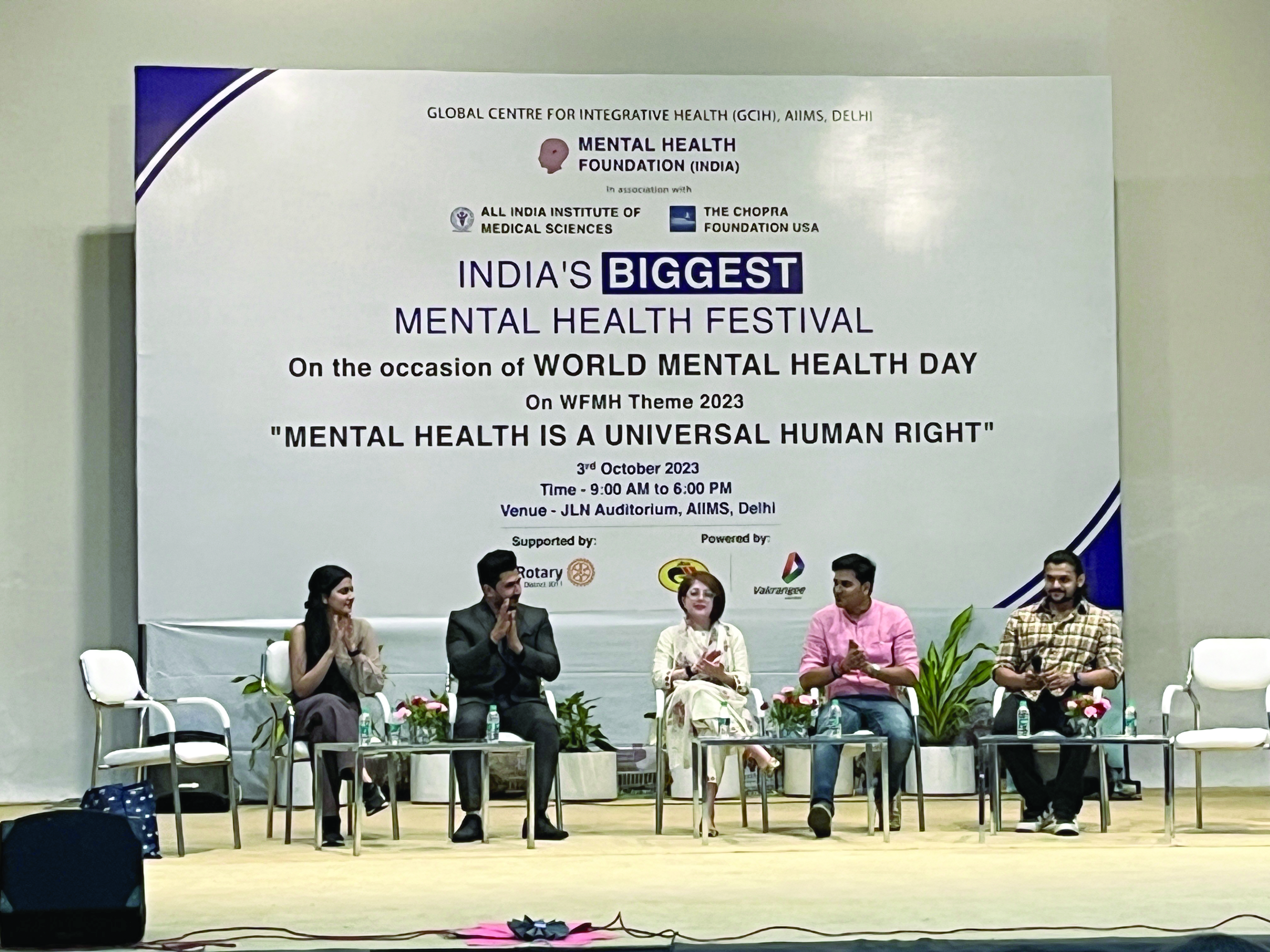MHFI, AIIMS, Deepak Chopra Foundation USA organise ‘Mental Health Festival’

New Delhi: The Mental Health Foundation India (MHFI), in collaboration with the All India Institute of Medical Sciences, Delhi, and the Deepak Chopra Foundation USA, organised India’s largest ‘Mental Health Festival’ on Tuesday at the JLN Auditorium, AIIMS.
The event brought together over 1,000 participants, including psychology students, professionals, and mental health advocates from diverse backgrounds.
The central theme for this year’s discussions, as recommended by the World Federation of Mental Health (WFMH), revolved around the idea that “Mental Health is a Universal Human Right.”
During an insightful discussion, Sayan Chaudhary from Aaina Education delved into the significance of English as a democratic tool and highlighted how access to mental health can be a privilege. He underscored, “The use of democratic English goes beyond language barriers; it extends to the use of complex terminology that can intimidate individuals, discouraging them from seeking therapy. In order to make therapy accessible, the first step is to make therapy less intimidating.”
Richa Vashista, a queer therapist, voiced concern about the neglect of Queer neurodivergent voices in the mental health community from a policy perspective. While speaking to Millennium Post she emphasised, “The lack of recognition of their identities is truly disheartening. There needs to be good policy backing and an interdisciplinary approach essentially in order to cater to minorities.”
Dr Sanjay Kumar, Director of the Mental Health Foundation of India (MHFI), discussed the persisting disparity in mental health accessibility for minorities. He stressed, “Inclusivity in mental health is essential, and involving parents in the discourse should be the primary step. Parents need to be more engaged in their children’s lives.”
Kabir Dev Mittra, a 16-year-old mental health advocate, focused on raising awareness about toxic masculinity among teenage boys. He emphasised the importance of addressing intersectionality and its impact on individuals. “Toxic masculinity is pervasive in schools, and I make efforts to raise awareness among my peers through open discussions.”



